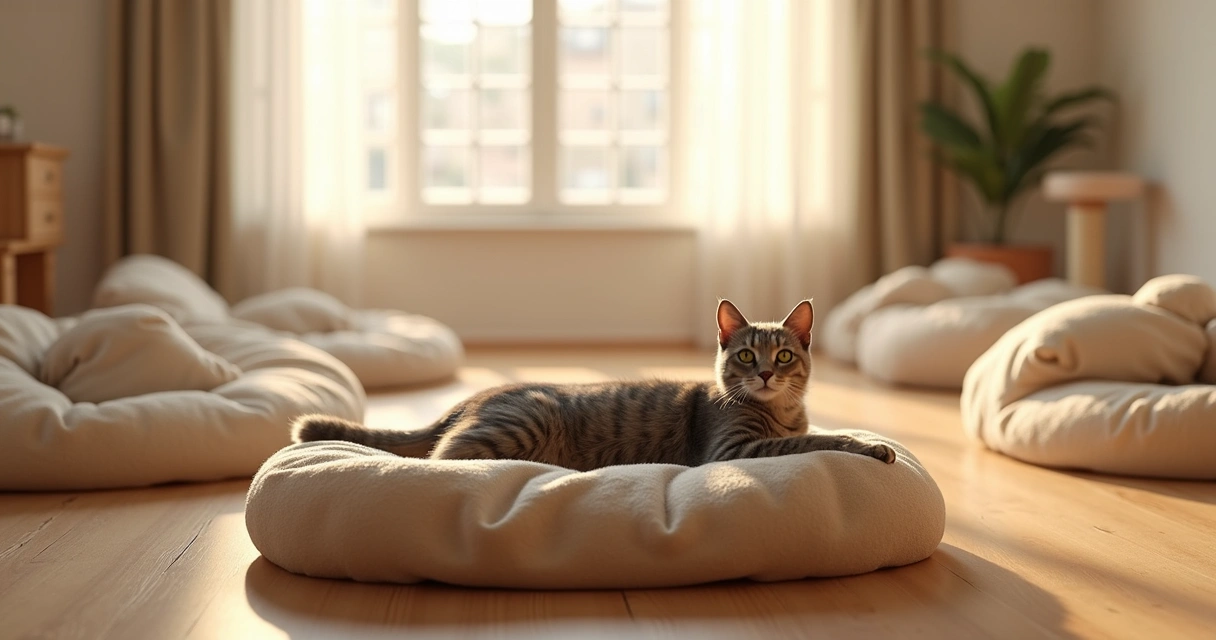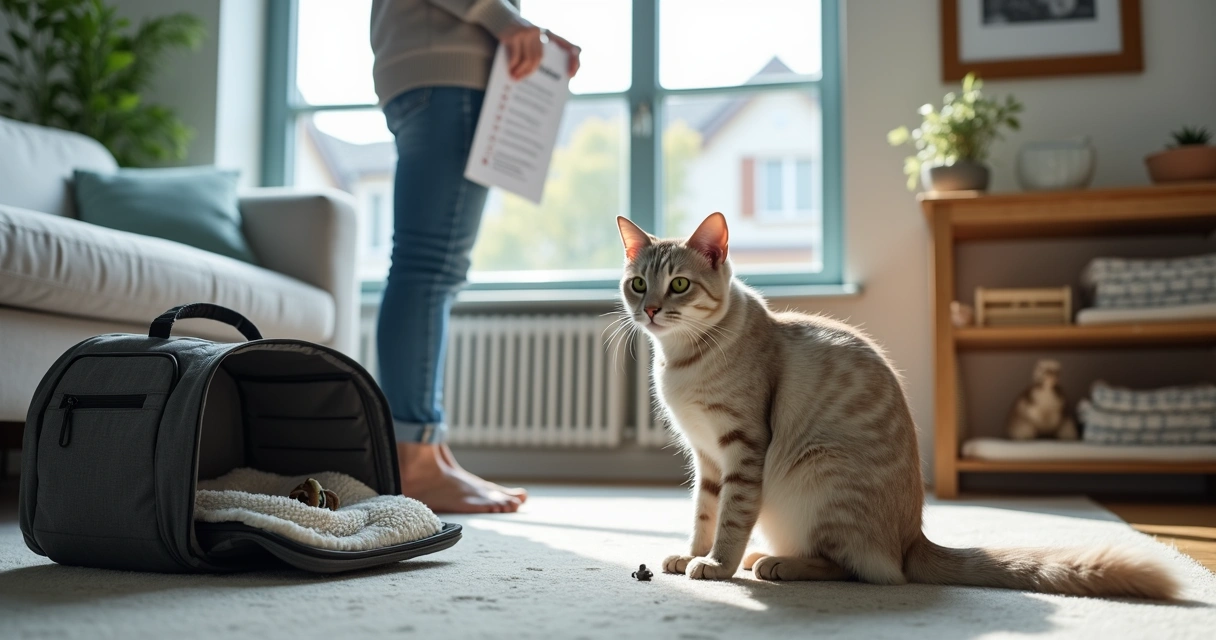If you’ve ever needed to travel, renovate your home, or just needed someone to look after your feline companion for a spell, you’ve probably found yourself googling “cat boarding” and wondering what it’s really like for your pet. The glossy brochures and polished lobby photos only tell part of the story. The truth is, while cat boarding can be a good experience, there are a handful of little-known facts—quirks, surprises, and even emotional details—that rarely make it into the conversation. So let’s talk about those. The things no one quite tells you, but every cat owner wishes they’d known before checking in their whiskered friend at a place like Dogtown in Gloucester.
The environment matters more than you realize
When you board your cat, you aren’t just leaving them in a box. Environment shapes almost everything about their stay. Research from the National Center for Biotechnology Information shows that cats in featureless, lonely enclosures feel much more stress than those in spaces enriched with toys, perches, and little hideaways.
- Think cat condos with shelves for climbing
- Blankets with familiar smells
- Soft lighting, not blinding fluorescents
- Calming music or background noise
At Dogtown, the care team pays careful attention to each animal’s size and temperament, making these environmental decisions on purpose. Not every cat boarding place does. Overlook that, and you can wind up with a nervous, skittish cat coming home—or, maybe worse, a cat who simply shuts down.
Cats look for safety in their space. Choose a space that understands that need.
Stress shows up in surprising ways
You might expect a little separation anxiety. Maybe some meowing. But research published in PubMed finds stress in cats can cause symptoms you never connect back to boarding: not eating, obsessively grooming, hiding constantly, even peeing outside the litter box. You pick up your cat expecting purring, but instead you might get… nothing, or something unexpected.
It’s not your fault. It’s not the staff’s fault either, especially when they watch carefully and document any changes in behavior or appetite—something Dogtown does during their daily feedback. But it’s best to be prepared.
- Loss of appetite? Often stress, not illness.
- Suddenly hiding? They’re seeking a safe, familiar spot.
- Grooming until bald patches? A coping strategy.
Familiar objects are like comfort food
One of the most helpful things you can do is bring a piece of home with your cat. According to The Ohio State University's Indoor Pet Initiative, cats in unfamiliar places relax more if they have their own blanket, toys, favorite food, and especially something holding your scent. It might sound small, but to a cat, it’s gigantic.
I remember packing my own cat’s worn-out plush mouse and an old t-shirt last time she stayed at Dogtown. When I picked her up, she’d tangled herself around both so tight it looked like an odd shrine. But she seemed calmer than the cat in the next enclosure, who hid behind his litter box the entire time. Coincidence? I don’t think so.
- Pack a blanket from home
- Bring their bowl and usual food
- Include a shirt or scarf with your scent
- Pack a box or carrier they already know
Your cat’s belongings are their touchstones.

Not every boarding experience is social
People picture dog kennels filled with playtime and group snuggles. But cats? Not so much. Socialization for cats can be a tough topic, and not always recommended. Some cats love a bit of quiet companionship, others prefer being left strictly alone. Studies by the Cornell University Shelter Medicine Program stress that new smells, sights, and sounds amplify a cat’s stress, especially when forced into interactions.
Dogtown understands this—cats are grouped or isolated according to their comfort level. But you won’t see big “cat parties” happening, and that’s perfectly fine. Even if you’re a social butterfly, your cat probably isn’t—and their idea of the perfect holiday is quality alone time punctuated by soft words or gentle brushing.
- Ask how your cat will be housed
- Check if solitary and social cats are separated
- See if there’s an option for play, or just privacy
If you want to know more about social interaction for pets in care environments, Dogtown’s day camp program offers a nice look at how animal personalities are respected—even for cats who don’t want to party.
Hiding spaces mean everything
A cage with a perch or a cubicle to crawl behind does wonders for a cat’s stress. A study in NCBI showed that cats who could hide or climb instantly exhibited lower stress responses than cats kept in plain, view-exposed boxes.
If a boarding room doesn’t show you hidey-holes, soft carriers left open, or shelves and boxes, question it. Ask the staff to add a box or keep your cat’s carrier in the enclosure. At Dogtown, providing these spaces isn’t just a nice touch; it’s fundamental to every enclosure, and it’s something you might not think to ask for without a research background.
Hiding spots calm, climbing keeps the mind busy.
Daily routines may get shaken up
Even the best cat boarding teams can’t recreate every detail of your home routine. The light is different. The smells new. Mealtime might be an hour off. Studies described by the Ohio State University's Indoor Pet Initiative highlight that even minor changes in environment or schedule cause noticeable shifts in cat mood and behavior.
This is not a warning—just something subtle in the background. Expect a short adjustment period when your cat returns home. Some bounce back instantly, some need a bit of time, and a few might surprise you with how unfazed they seem. The point: change is inevitable, but organizations like Dogtown do everything they can to ease the transition by keeping feeding, cleaning, and snuggle times as regular as possible.

Grooming and personal care can be soothing (or stressful)
Some cats find brushing, nail trimming, or even a bath relaxing—others see it as the end of the world. If you know your cat loves a brush, booking a grooming session during their stay might make the experience much less traumatic. Staff trained to interpret feline body language can turn care routines into comfort activities, especially if your cat has a favorite brush or prefers a certain routine.
Of course, not every cat is the same. Talk to your boarding provider about your cat’s personality and boundaries. Dogtown’s grooming team offers customized sessions, but you should always share what works (and what doesn’t) before boarding day rolls around.
- Include grooming in your care plan if your cat enjoys it
- Skip it if your cat’s sensitive
- Tell staff about quirks—yes, every single one
Your cat’s return may be a little awkward… or not at all
After boarding, some cats sprint home excited, others hide for days, and a few don’t seem to notice they were ever gone. You may expect a tearful reunion, but often, it’s the cat who needs you to prove a little patience. Give them space. Unpack their things slowly. Offer soft words and some love, but let them find their own pace. After a few days, most cats return to normal, and in many cases, seem a little more affectionate—maybe even grateful, in their own mysterious feline way.
If there’s a persistent change—like not eating, hiding more than usual, or using the litter box differently—reach out to your vet, or speak with the team at Dogtown, who are always ready to help with aftercare advice. Sometimes, a little extra grooming or a moisturizing treatment helps signal homecoming. Other times, they just want your sweater back.
Conclusion
Every cat boarding experience is unique, shaped by a mix of your cat’s personality, the care routines of the facility, and the details you bring from home. Knowing these less obvious truths doesn’t make you a worrywart—it makes you prepared. The best cat boarding facilities, like Dogtown in Gloucester, focus on stress-free socialization, daily feedback for owners, and include everything from tailored enclosures to pre-enrollment assessments for peace of mind. If you want to learn more about what makes for a truly safe and enriching cat stay, consider booking a tour or scheduling an assessment to see how Dogtown stands out. Your cat may not thank you out loud—but you’ll see it in their eyes.
Frequently Asked Questions
What is cat boarding?
Cat boarding is a service where cats are cared for in a dedicated facility while their owners are away. The best boarding places, like Dogtown’s cat boarding service, provide safe enclosures, daily supervision, feeding, play, and sometimes grooming or enrichment, so your cat is looked after until you return.
How much does cat boarding cost?
Prices vary depending on location, duration, and services. Some facilities offer a simple per-night rate, while others charge for additional care, play sessions, or grooming. It’s best to contact your chosen provider—Dogtown, for example, offers different packages and services so you only pay for what your cat needs.
Is cat boarding safe for my cat?
If the facility is clean, staff is trained, and your cat’s health and temperament are considered, then yes, cat boarding is generally safe. Facilities like Dogtown conduct pre-enrollment assessments to make sure cats are well-suited for boarding and separated or grouped based on safety, compatibility, and comfort.
How do I prepare my cat for boarding?
Gradually acclimatize your cat to their carrier, pack familiar objects such as favorite toys, blankets, and a piece of clothing with your scent, and provide information about your cat’s routines and quirks. Bring their own food to avoid sudden changes. If you’re unsure, you can read more advice or reach out for help through Dogtown’s boarding guidance.
What should I bring to a cat boarding facility?
Bring your cat’s food, a blanket or bed from home, favorite toys, medications if needed, and your cat’s usual carrier. A recent study by the NCBI shows that cats settle faster when they have these comforts from home.





